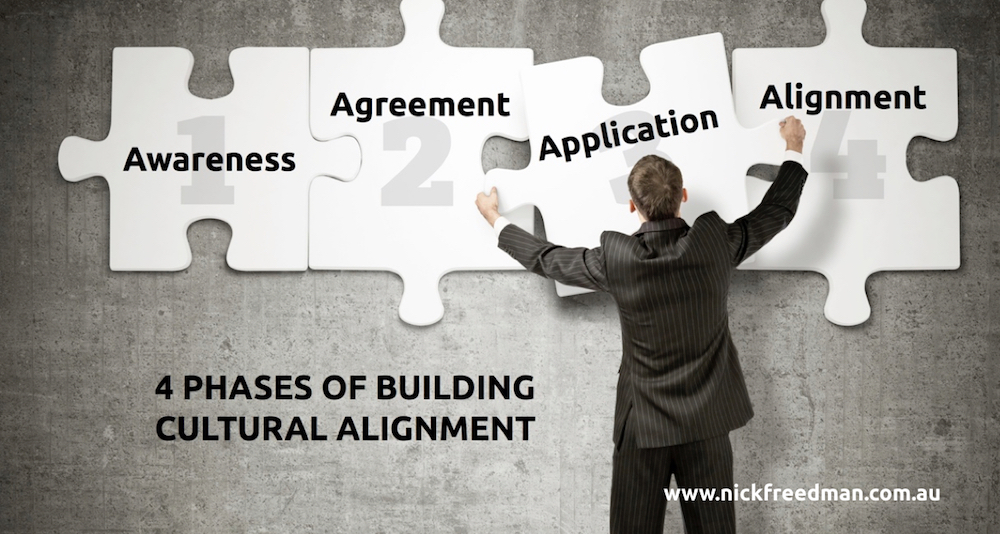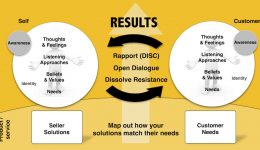4 STEPS TO A GREAT CULTURE
Most leaders know about the importance of culture and in big businesses they’ll have an HR team who can help them drive programs. In smaller businesses it often becomes a challenge due to competing time pressures and priorities. This article lays out the process I use to take businesses through my cultural alignment program.
The culture of your business is different from your strategy. Culture, put simply, is ‘how you do things.’ And strategy is ‘what you do.’ One focuses on the products and services you trade with your customers, and the other focuses on the values and behaviours of every member of your team. There’s a wonderful body of work by Ken Wilbur, called Integral theory, which explains this in more depth. Download this map to understand more about this.
Over the past 10 years working as a culture consultant, I have helped 1000s of people learn how to develop the culture of their businesses and teams. Cultural alignment is the ultimate goal of the work we do, and this occurs when there is a clearly defined purpose and a set of values and mottos, which everyone buys into. This alignment creates a bond, like glue, which helps you keep great talent motivated and focussed on the the way you like do things in your business. It’s easy to discuss and more challenging to achieve.
When Josh Kidd, CEO of Clever Contacts, asked me to help him build cultural alignment in his business, I explained to him the 4 steps or phases involved. And despite the fact he told me his culture was already very strong, he saw the benefit in getting clarity about the language his people used to describe their ‘ unique how.’ The video above illustrates the highlights of the 2 day culture retreat, and the 4 phases are explained below.
Phase 1 – Awareness
This is the process of exploring who we are via personal values profiles. The free values profiling tool on my website enables your people to do this easily. What we then do is map out the values of the leaders and significant team members to establish what is really driving people. Through this process we establish the common ground of what people already value.
Phase 2 – Agreement
The culture team then work in small groups to filter through the values cards to reach agreement about the 6 core values. Some of the final 6 are current (who we are) and some are aspirational (who we want to become). Then the team work together to define your mottos. Here we often engage the wider business. I have a simple theory with this. The more people who get involved the better it is. Culture projects do not work when they are delivered as a top down thing. People need to get their thumb prints on the culture and the definition of the mottos is a great way to engage the wider business.
Phase 3 – Application
This is where you ask everyone ‘how do we live and breathe these values in our everyday work?‘ What comes out of these conversations is a cultural development roadmap with a range of projects. Clever Contacts are currently building a range of internal and external culture programs to bring their values to life.
Phase 4 – Alignment
This is the ongoing cyclical work of building alignment of employee values with the organisational values. When you look at the employee life cycle of attract, recruit, develop, retain and release, there are a range of tools you can use at each stage of the process to get the right people on board. One example is to ask candidates to complete the values profiling tool on my website before the interview and share their values (as well as skills) with you during the interview. This enables you to see if they are going to be a good fit, or not. Simple techniques like this can save months of wasted time, trying to get people to buy into your culture, when you could have found out upfront that they weren’t really the right fit for your business or team.
In a quick questionnaire I conducted with 250 CEOS, I established that less than 10% of business have a clearly defined culture that they track and reward employee behaviours against. Having a strong culture gives your business a competitive advantage in the talent market. It also gives you more control over how your people interact with each other and your clients.
If you are interested in discussing how to build cultural alignment in your business, get in touch and let’s start the conversation.





















